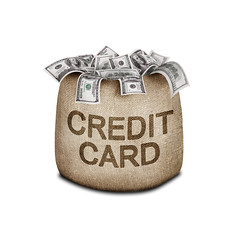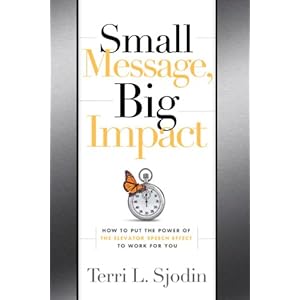- I tried to avoid it. I really did, but I’m still getting a much bigger refund than anticipated. #
- Did 100 pushups this morning–in 1 set. New goal: Perfect form by the end of the month. #
- RT @BudgetsAreSexy: Carnival of Personal Finance is live 🙂 DOLLAR DOODLE theme: http://tinyurl.com/ykldt7q (haha…) #
- Hosting my first carnival tomorrow. Up too late tonight. #
- Woot! My boy won his wreslting match! Proud daddy. #
- The Get Home Card is a prepaid emergency transportation card. http://su.pr/329U6L #
- Real hourly wage calculator. http://su.pr/1jV4W6 #
- Took my envelope budget out in cash, including a stack of $2s. That shouldn’t fluster the bank teller. #
Zimmerman Wins Lottery: A Prank, but What Are the Real Odds of Winning?

Satirical reports regarding George Zimmerman have been misconstrued as factual by several media outlets, which have led to the belief that the man who killed Trayvon Martin is now a multimillionaire due to a lucky lottery ticket. The improbability of the story is astounding, but the more inconceivable notion is that reporters actually believed it enough to pass it on to their audience. The origin of the hoax was the same source that profligates fake news items on a regular basis: The Onion.
was obviously meant to be disseminated as sarcasm, but the writers must feel tremendous pride in their ability to dupe the mainstream media. An unintended prank has a marvelous ability to generate a lasting reputation for the satirist. Notoriety is now something the author has in common with Zimmerman.
A stark contrast exists between lotteries and trials, and they are not equivalent. The justice system strides to avoid occurrences of random chance while lotteries promote the notion that anyone can win. The legal process is supposed to rely on evidence. Regardless of the circumstances, a victory in the courtroom has to be vigorously earned. Contrarily, there is nothing anyone can do to increase their chances in a lottery short of buying massive amounts of tickets. In a trial, the concept of reasonable doubt exists to exonerate the defendant, which should eliminate any potential for a toss-up. Courtrooms operate using evidence while lotteries are strictly statistical; therefore, the comparison is non-existent.
Even when it comes to jury selection, the process is not chaotically uncontrolled. Both sides have a general composition is mind, and they meticulously scrutinize prospective jurors as they whittle the numbers down. The pool is always sifted for bias. They are analyzed with hopes of picking people that will be sympathetically swayed towards a certain point of view. At the end, one side picked a better jury. Lotto victors cannot pick the numbers that will be responsible for their fate. Winners of lotteries do not stalk unarmed teenagers with a gun and fatally shoot them, but apparently winners of trials in Florida do.
Lotteries are often labeled as a tax for dumb people; coincidentally, this demographic is the same segment of the population that was targeted by the falsified journalism. In fact, real lottery odds are mathematically insignificant. An ABC News study declares it would take 1,684,841 years for the average lottery player to win a jackpot. Not even Zimmerman is that lucky.
Related articles
Back to Cash
It appears that I can’t be trusted with a credit card.

At least, not a credit card that gets used for our regular shopping.
Over the past few months, our spending has slipped past our budget by more than I like. The problem appears to be that it’s really easy to toss “just one more thing” in the cart when there’s no hard limit on how much is available to spend at the register.
If you do that a few time, it’s easy to find yourself $1000 over budget.
Ouch.
If it weren’t for my side hustles, we’d have been growing our debt recently.
As of the beginning of this month, our credit card has once again been relegated to automatic bills, the gas station and online purchases.
No more groceries, no more scrapbooking stuff, and no more restaurants.
I would have done this sooner, but we were so far over budget that I didn’t have the cash to yank out all at once to cover our month’s expenses. We ended last month at a good place, so I went for the clean break and withdrew all of our day-to-day spending on the first. When I got home, it went straight into envelopes so we know what we’ve got to spend this month.
Bye-bye, credit cards!
Make Yourself Accountable
Everybody knows the reputation New Year’s resolutions get for being abandoned in under a month. Following through with your saving and budget goals can be difficult. There are thousands of strategies for keeping your resolutions, but I’ve found that the best goal-keeping mechanism is to make yourself accountable. There are several ways to accomplish this.
Make Firm Goals. If your goals are open to interpretation, it’s easy to interpret them in a way that lets you off the hook. Make the goals concrete and immune to interpretation, and that can’t happen. “Get up earlier” may mean five minutes, which is technically meeting the goal, but not really. “Get up at 5am” is clear and concrete.
Get a “Goal Buddy”. When I am out shopping, if I’m struck by the impulse to buy something I probably don’t need, I call my wife. She’s more than happy to encourage me to put the movie or game back on the shelf. I have a friend who will call me up if he’s thinking about buying a new gadget so I can talk him down. Friends don’t let friends mortgage their futures.
Go Public. As you may have noticed, I’m being as open as possible with my goals for the year. I have laid out clear goals and I provide fairly frequent updates through both this site and twitter. If I fail, I fail in front of an audience. That’s strong encouragement to succeed. Tell your family, friends and coworkers. Announce your goals on the internet. Make it as difficult as possible to fail gracefully.
Punish Yourself. I have a line item in my budget called “In the hole“. If I go over budget one month, the overage is entered as an expense the following month. This serves the double purpose of getting the budget back on track and forcing me to sacrifice something the next month to make that happen. Another option may be to write out a check to a charity you hate, and drop it in the mail if you miss your goal. Anything unpleasant can work as your punishment.
How do you keep your goals?
Annual Fees: Scam or Service?
Annual fees. For a lot of people, this is the worst possible thing about a credit card. That’s understandable, since paying interest is voluntary. If you don’t want to pay it, you just need to pay off your balance within the grace period. Annual fees, on the other hand, get paid, whether you want to or not, if the are a part of your credit card.
When I was 18, I applied for a credit card that raised an undying hatred of Providian in my heart. I was dumb and didn’t read the agreement before applying. When I got the card, I read the paperwork and nearly made a mess of myself. It had a $200 activation fee, a $100 annual fee, a $500 limit, a 24% interest rate, no grace period, and a anthropomorphic contempt for all things financially responsible.
Yes, you read that right. The day you activate the card, you are 3/5 maxed and accruing interest at rates that would make a loan shark blush like my grandma is a strip club. Instead of activating, I cancelled the card and ran away crying. It was a mistake but didn’t cost me anything.
In exchange for all of that, I got…nothing. The card offered no services of any kind in exchange for the annual fee.
On the other hand, I have a card with an annual fee right now. It’s $59 per year, but it offers value in exchange.
This card’s basic offering is a 2% travel rewards plan. With most of our spending on this card, we’ve managed to accumulate $400 of rewards, so far, counting the 25,000 bonus miles for signing up.
In addition, it offers 24 hour travel and roadside assistance. The roadside assistance itself will pay for the fee, because I think I’ll be canceling my AAA account after 16 years. The card’s plan isn’t as nice, but I haven’t been using the AAA emergency services for the past few years, anyway.
It extends the warranty on anything I buy. It includes car rental insurance and concierge service. Concierge service is sweet. Need reservations for dinner? Call the card. Need a tub of nacho cheese? Call the card. Need a pizza? Well, call Zappos.com.
All in all, the card is paying for itself a couple of different ways, so in this case, the annual fee is definitely worth it. I guess there’s a serious difference between Capital One Venture and Providan Screwyou.
How do you feel about annual fees? Love ’em, hate ’em, have a card with one?








